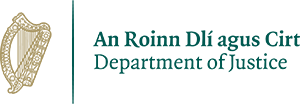In This Section
Introduction
The Atypical Working Scheme allows you to work in a position not covered by other employment rules. For example, this could include an industry with a skills shortage, an internship and other roles.
When can you apply?
You can apply for an employment visa (Atypical Working Scheme) once you have an approval letter from the Atypical Working Scheme Division of the Immigration Service (ISD) to take up short term employment in Ireland.
You can apply for the visa up to 3 months before your date of travel to Ireland. If you are visiting another state prior to travelling to Ireland, you must have the relevant visa for that state in your passport before applying for an Irish visa.
How to apply?
Answer all questions in AVATS fully and honestly. When you have completed the online application process, you must follow the instructions on the summary application form that is created by the online system. The summary form will contain information on where you are to submit your supporting documentation.
The summary form which you must print, sign and date must be submitted with your supporting documentation. You may be required to provide your biometrics information as part of the application process.A guide to supporting documentation is set out below.
Visa fees
Payment methods and currency options may differ between offices. Contact your application office to find out how to pay. Some applicants are exempt and do not pay visa fees. Current fees are:
The visa fee covers the administrative cost of processing your application. It will not be refunded if your application is withdrawn or refused. The website of the visa office/Embassy/ Consulate will have details about additional charges and local payment options.
How long will it take?
Applications are processed in date order. You are advised not to purchase travel tickets before you know the outcome of your visa application.
Processing times can vary between countries. They can also vary during high volume periods during the year. However, you can generally expect a decision within 8 weeks from the date on which your application is lodged at the visa office, embassy or consulate. Your application may take longer if for example you have not submitted the necessary supporting documentation, your supporting documentation needs to be verified or because of your personal circumstances (for example if you have a criminal conviction).
You can check the processing times for the visa office, embassy or consulate that is handling your application on their website. If your application is being processed by the visa office in Dublin you can check the date of the applications currently being processed on the visa decisions page.
Activities not permitted
You are not permitted to:
Supporting documentation
The documents required are important because they provide information about your personal circumstances in the country from which you are applying. It is your responsibility to satisfy the visa officer that a visa should be granted for the purpose sought. The submission of any or all of these documents does not guarantee that your application will be successful. Original documents must be provided.
If you submit a document that is not in English or Irish, it must be accompanied by a full translation. Each translated document must contain:
All letters submitted from a business, company or other organisation must be on official headed paper so they can be verified, and show the organisation’s:
The visa officer considers each application on its merits and may request additional information or documentation.
“Any State issued official documents, such as Birth Certificates, Marriage Certificates, Death Certificates, Divorce Certificates that were issued by a State outside of the EEA or Switzerland, must be attested/apostilled as genuine by the Ministry of Foreign Affairs in the State that issued the document, in order that it can be accepted as evidence for Irish visa purposes. Such documents are required to be translated into English or Irish, if necessary. Translations done outside the EEA or Switzerland must also be attested/apostilled as genuine, by the Ministry of Foreign Affairs in the country in which the translation occurs. Send us both the original documents and the certified translations. Translations done in the EEA or Switzerland do not need to be attested by the Ministry of Foreign Affairs.
Any State issued official documents, such as Birth Certificates, Marriage Certificates, Death Certificates, Divorce Certificates that were issued by a State within the EEA or Switzerland do not require to be attested as genuine from Member States. A translation of these documents is not required where a multilingual standard form (MSF) is also provided. Such MSF forms are available from Member States on request. If an MSF is not provided by you then those documents are required to be translated into English or Irish, if necessary in order that it can be accepted as evidence for Irish visa purposes. Translations done outside the EEA or Switzerland must also be attested/apostilled as genuine, by the Ministry of Foreign Affairs in the country in which the translation occurs. Translations done in the EEA or Switzerland do not need to be attested by the Ministry of Foreign Affairs. We will also accept the Extract of a European marriage certificate, issued in accordance with the “Convention on the issue of multilingual extracts from civil status records“, as proof of a marriage within the EEA or Switzerland. Send us both the original documents and the certified translations.”
Guide to supporting documentation
If you do not submit the required documentation your application may be refused on the basis of insufficient documentation. Your signed and dated summary application form and the appropriate fee (where applicable) must be accompanied by the supporting documentation set out below:
Two colour passport sized photographs not more than 6 months old
Your name and visa application reference number must be printed clearly on the back. More information on photograph requirements.
Your current passport and a full copy of all previous passports.
Your current passport must be valid for at least 12 months after your proposed date of arrival in Ireland.
If you are not a national of the country where you are applying from, you must submit evidence of your permission to be in that country for example a residence card. You must also have at least 3 months permission to be in that country after your intended date of departure from Ireland.
A signed letter of application that includes:
Approval Letter
A valid Atypical Working Scheme approval letter.
Evidence of your obligations to return to your country of permanent residence
As you are applying for a short stay visa for Ireland (which permits visits of less than 90 days), it is important that you provide evidence that you have strong family, social or economic ties to your country of residence. This is necessary in order to satisfy the Visa Officer that you will leave Ireland on, or before, your intended date of departure from Ireland.
It is your responsibility to provide this evidence. All of the information that you provide must be in the form of documentary evidence which can be verified by the Visa Officer.
Suggestions on how to show evidence of your obligations to return
- Details of any family members living in your country of residence – if you are married or have any dependent children, you should submit your marriage certificate and birth certificates for the children
- Evidence of any property you own/rent– For example title deed/tenancy agreement.
Medical or travel Insurance
Evidence of medical or travel insurance does not need to be provided with your application. However, the visa officer may request it before they make a decision on your application. If your visa is approved, you must have evidence of medical or travel insurance when you arrive at the port of entry (airport/seaport) and must present it to the Immigration Officer on request.
Previous Visa Refusals
If you have been refused a visa in the past for any country, you must provide the details. You must provide the original letter issued to you by the authorities of that country.
Return of documents
All documents submitted with your application must be original. We will return marriage, birth and death certificates to you after your application is processed. If there are other documents you want returned, type or write a list of the documents you want and then you should:
Your application may be refused if you do not submit all documents. Even if you submit everything required, there is no guarantee that a visa will be granted.

